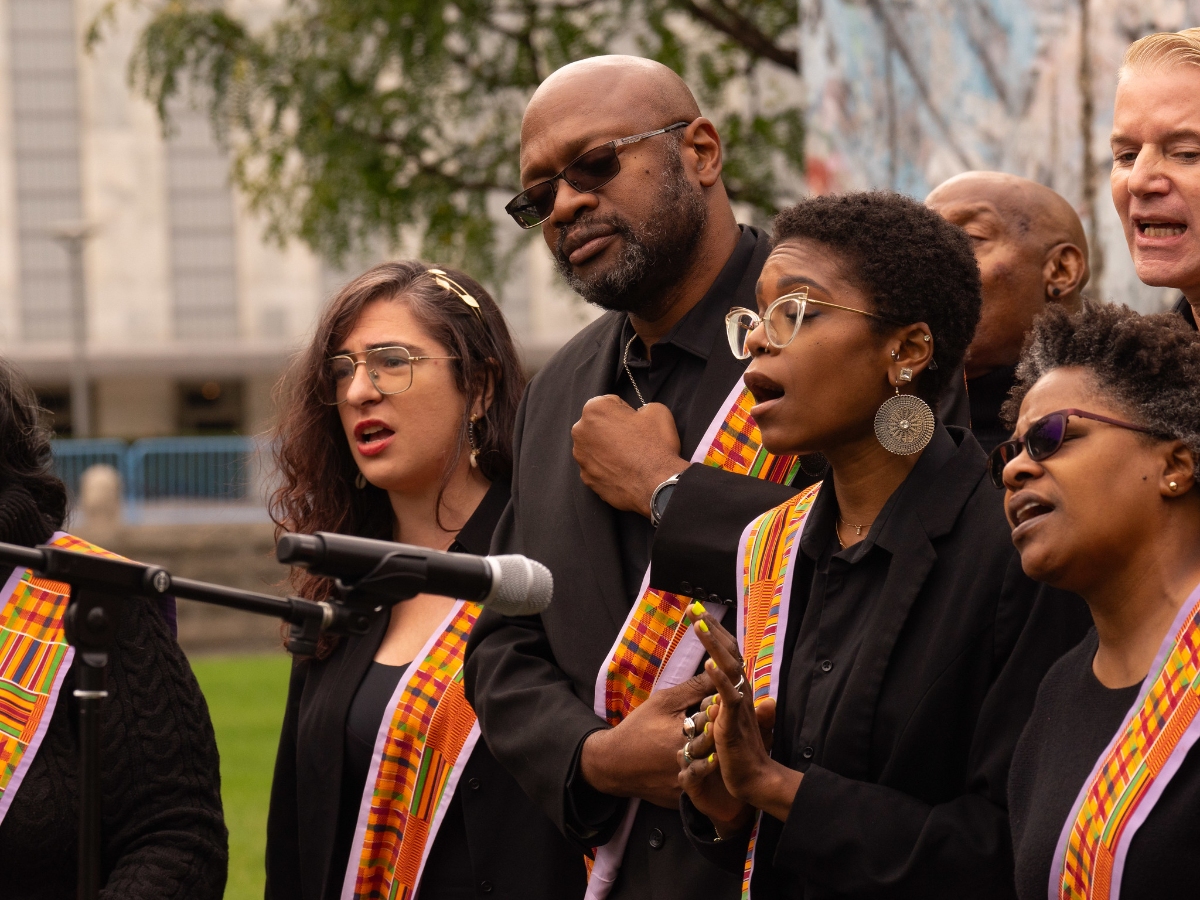Ending global poverty […] demands that we prioritize investments in decent work, learning opportunities and social protection […] it calls on us to fully implement the new Pact for the Future by supporting an SDG Stimulus and reforming the global financial architecture to help developing countries invest in their people.
UN Secretary-General António Guterres
2024 Theme
Ending Social and Institutional Maltreatment Acting together for just, peaceful and inclusive societies
Poverty has multiple dimensions, some visible and others hidden, but all interlinked. This year's theme will highlight one of the Hidden Dimension of Poverty the social and institutional maltreatment experienced by people living in poverty, and consider ways to act together on Sustainable Development Goal 16 (SDG 16) 16 to promote just, peaceful and inclusive societies.
People living in poverty face negative attitudes. They are stigmatized, discriminated against, judged for example by their appearance, accent, address - or lack of it, blamed for their situation, and treated with disrespect.
Social maltreatment creates a setting for institutional maltreatment, with a combination of negative attitudes, like mistrust and disrespect, as well as controlling discriminatory policies and practices, denying people of their fundamental human rights, for example, access to healthcare, education, housing, and the right to legal identity.
Social and institutional maltreatment interact and amplify each other, fueling this double-edged violence and deepening the injustice, and this is more pronounced for people who face other forms of prejudice as well, including gender, sexual orientation, race, or ethnicity.
A meaningful understanding of poverty and how the different forms of violence and domination interact with each other and impact people in poverty is critical.
Daily experiences of injustice and dehumanization undermines self-esteem, destroys personal agency, denies people of their dignity and the chance of getting out of poverty. Social and institutional maltreatment is a catastrophic loss of human potential to society.
Details available in the

Commemoration Event
17 October 2024
1:15 pm - 2:30 pm
ECOSOC Chamber
UN Headquarters, New York
You're invited to the 32nd Commemoration of the International Day for the Eradication of Poverty on Thursday, October 17th, at the United Nations Headquarters.
Background
In a world characterized by an unprecedented level of economic development, technological means and financial resources, that millions of persons are living in extreme poverty is a moral outrage. Poverty is not solely an economic issue, but rather a multidimensional phenomenon that encompasses a lack of both income and the basic capabilities to live in dignity.
Persons living in poverty experience many interrelated and mutually reinforcing deprivations that prevent them from realizing their rights and perpetuate their poverty, including:
- dangerous work conditions
- unsafe housing
- lack of nutritious food
- unequal access to justice
- lack of political power
- limited access to health care
Read more on the background for the Day
Related organizations and information

World Social Report 2024 - Social Development in Times of Converging Crises: A Call for Global Action
Poverty Facts and Figures
- Extreme poverty is defined as surviving on less than $2.15 per person per day at 2017 purchasing power parity.
- By the end of 2022, 8.4 per cent of the world’s population, or as many as 670 million people, are expected to be living in extreme poverty.
- An estimated 7% of the global population – around 575 million people – could still find themselves trapped in extreme poverty by 2030.
- In response to the cost-of-living crisis, 105 countries and territories announced almost 350 social protection measures between February 2022 and February 2023.
Testimonial Quotes
- “When you live in extreme poverty, you are caught up in a complex system of power relationships and domination. We need to adopt a systemic approach to show how these different dimensions interact with each other.” Consultation on the theme of October 17, Forum for Overcoming Poverty (March 2024)
- “Social and institutional maltreatment destroys our dignity. It often makes you feel weak because you put all your energy into doing something and in the end, you don't see the results. It's a divisive thing.” - A person in poverty
- “We are not seen as families who need help or support, but as parents who have failed. Our living conditions are not taken into account. This perception of failure distorts relations between parents and professionals and becomes a pretext for reproducing the domination of institutions over parents.” - European seminar “Building a future without poverty for children: parents and society together” (November 2023)




